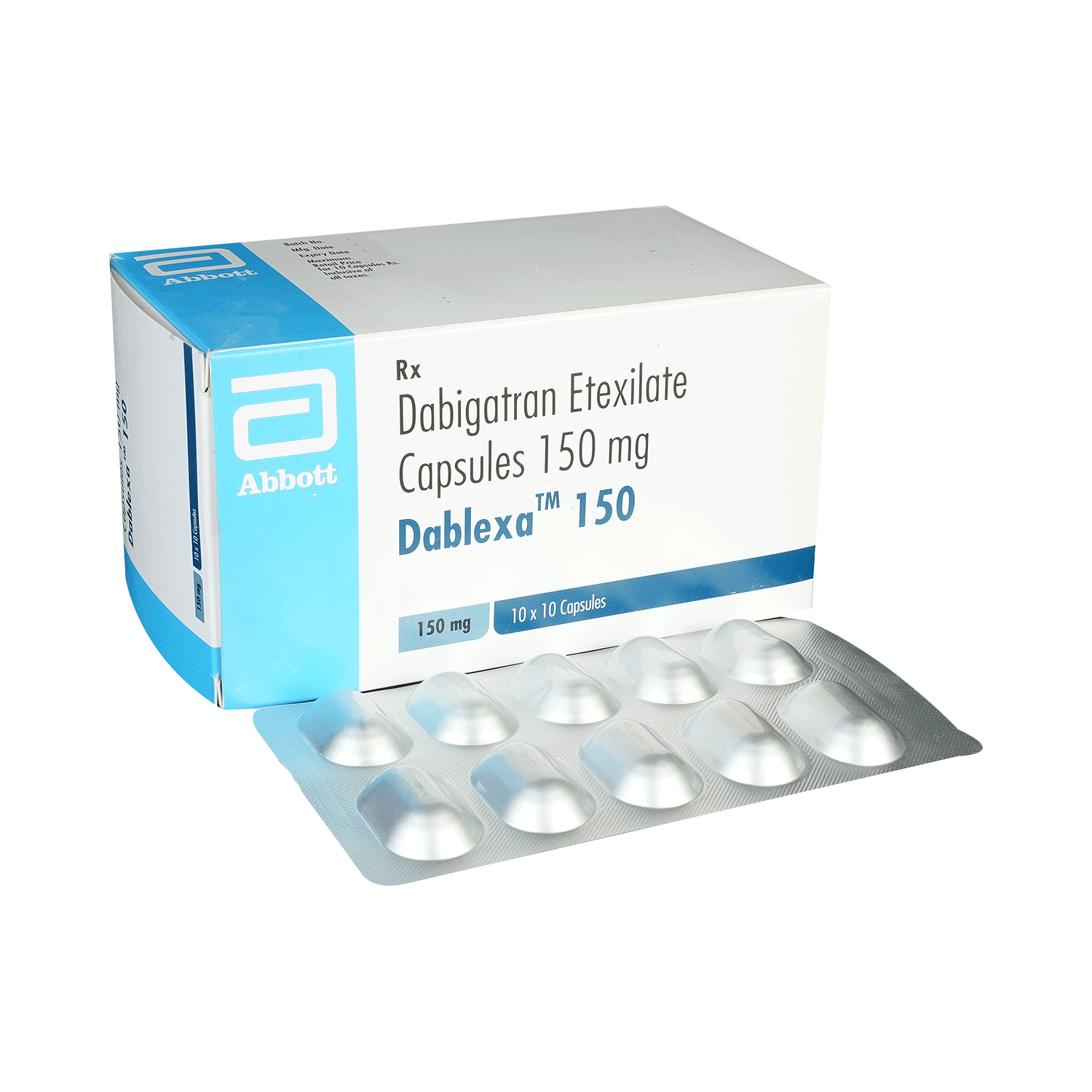
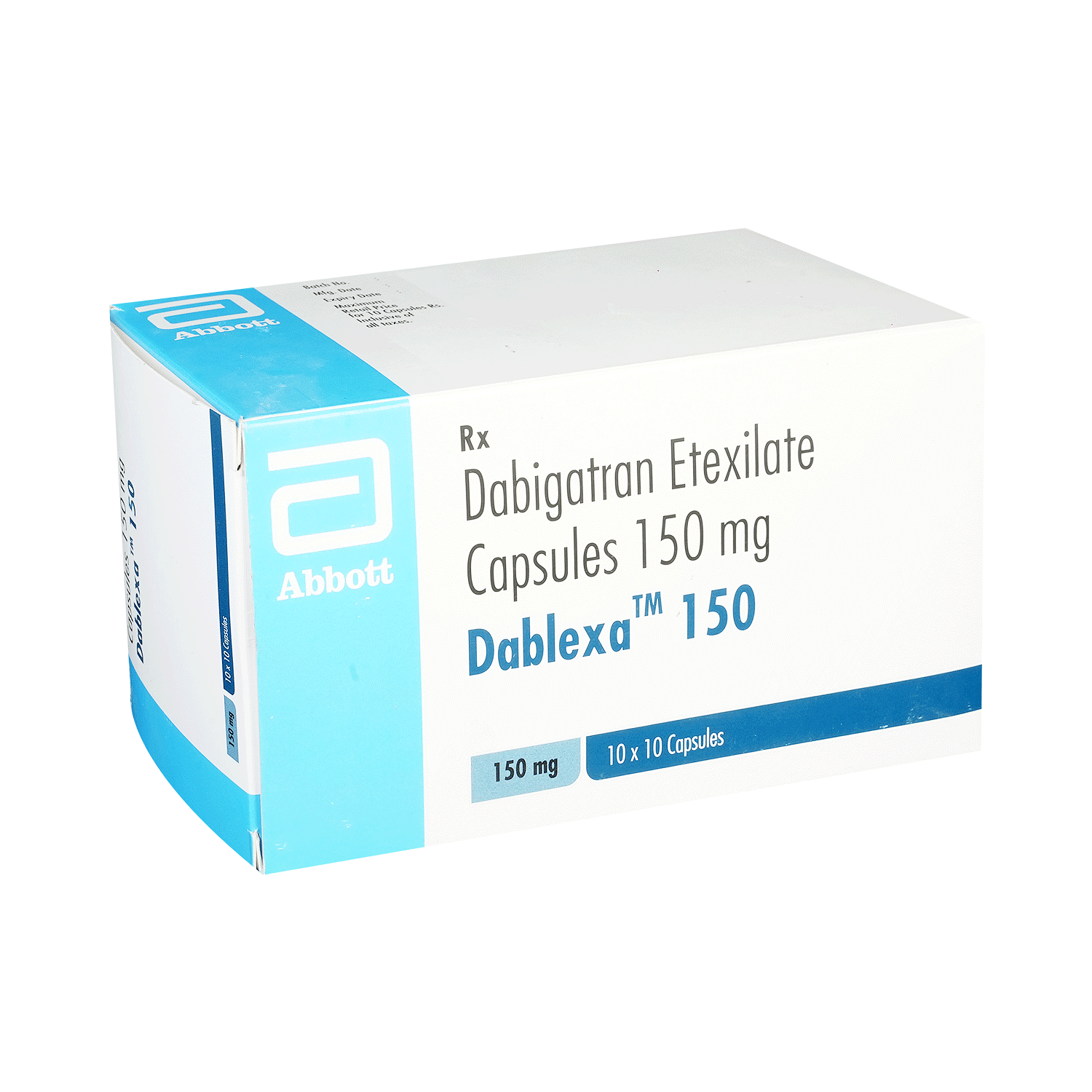
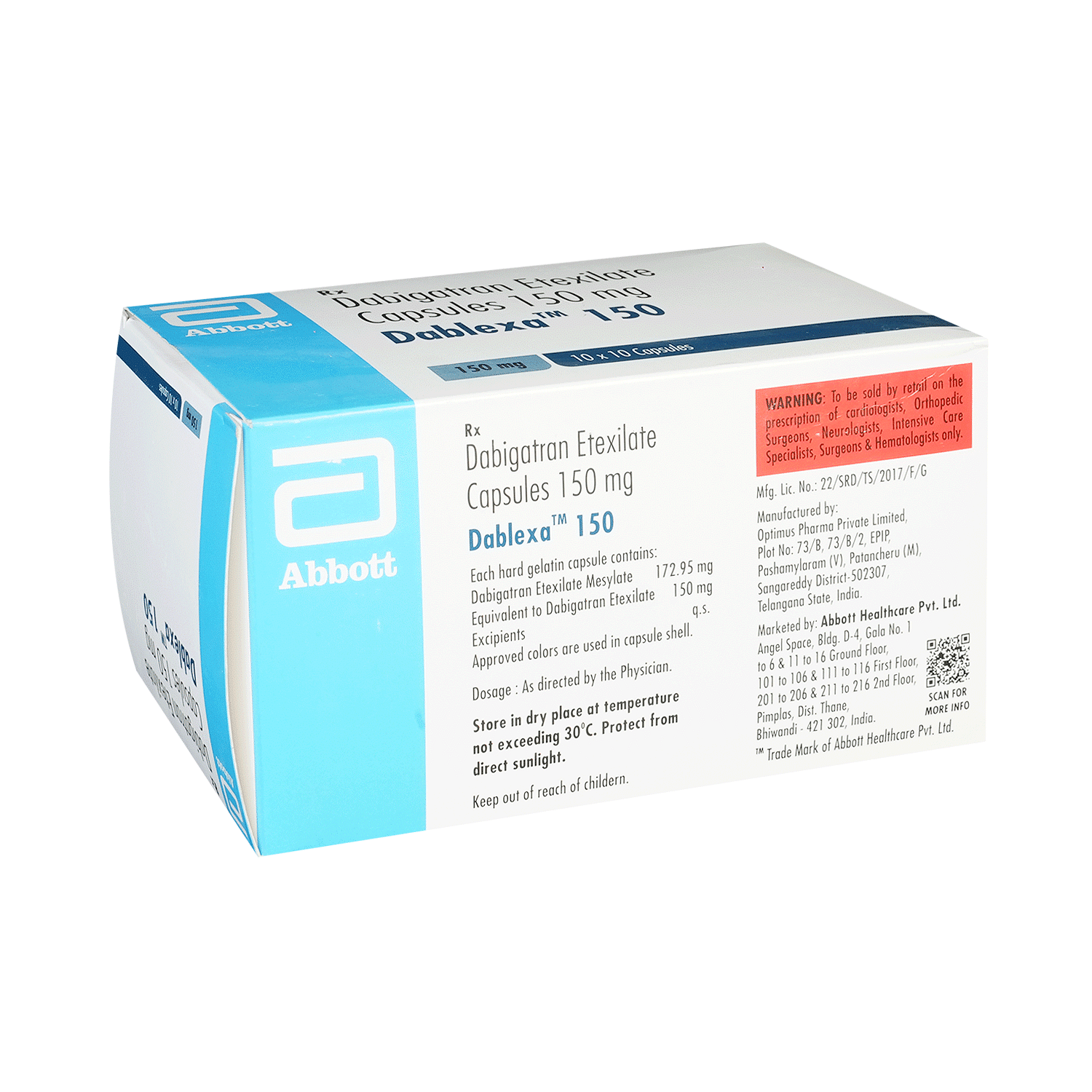
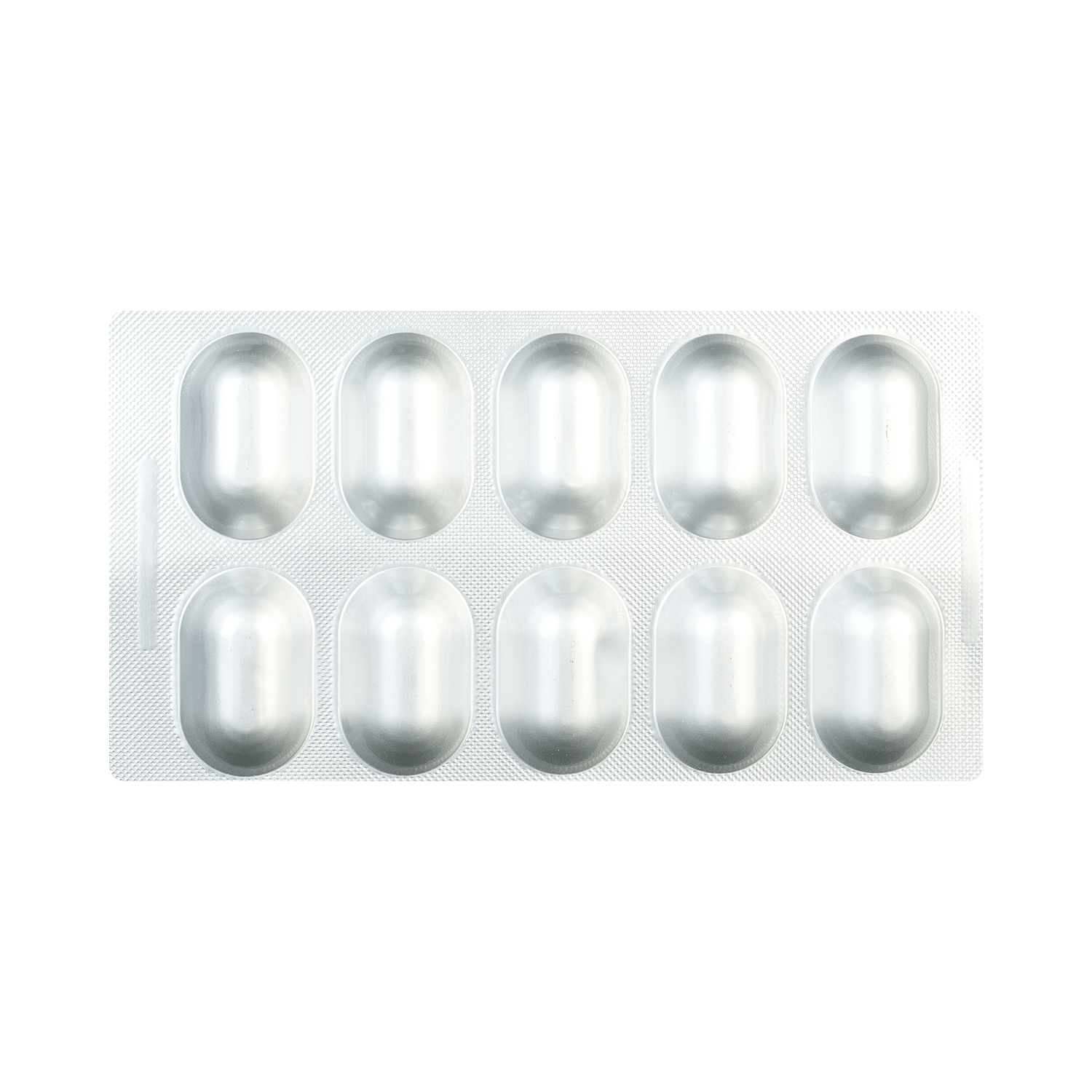
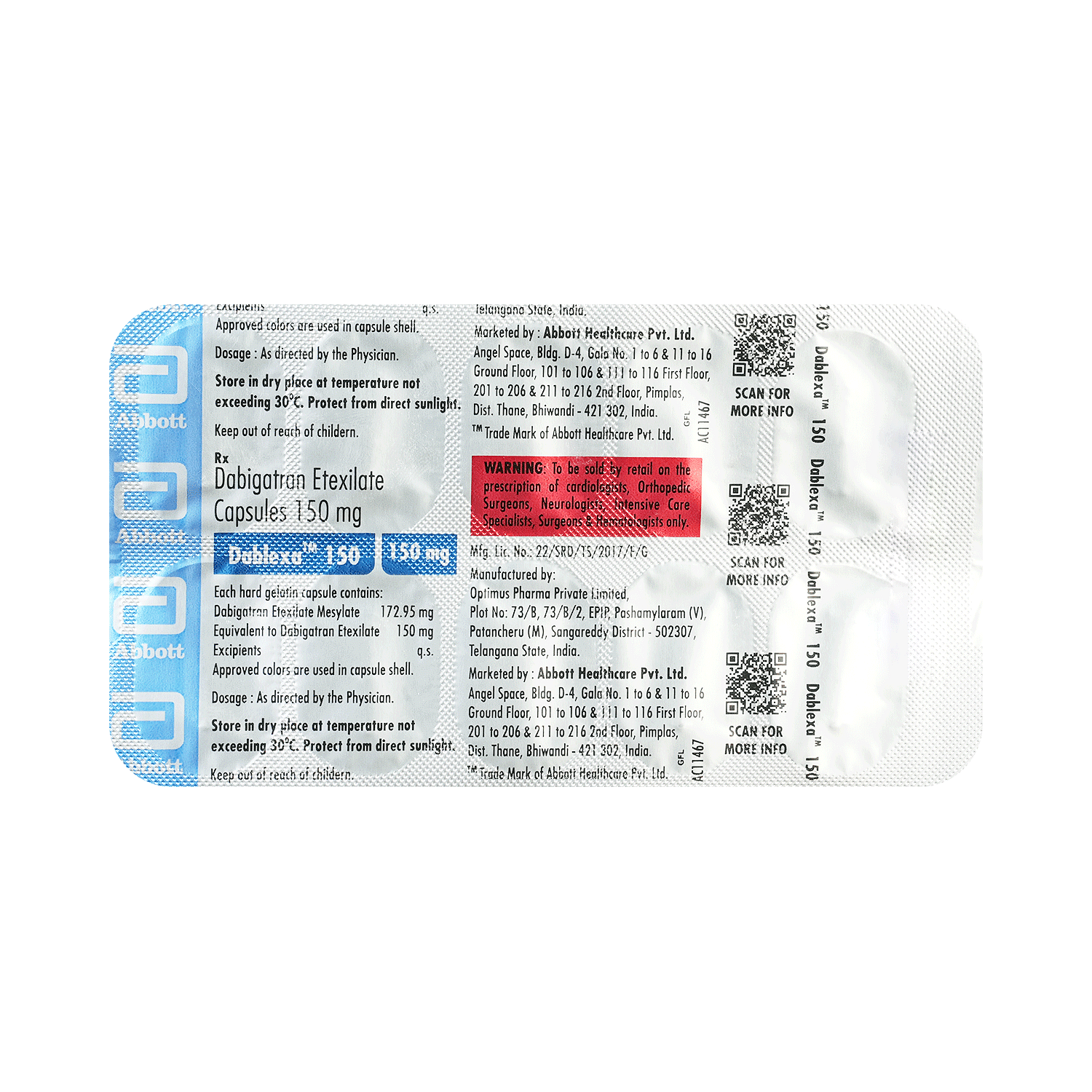
Dablexa 150 Capsule
Manufacturer
Abbott
Salt Composition
Dabigatran (150mg)
Key Information
Short Description
Dablexa 150 Capsule is an anticoagulant or blood thinner that helps prevent and treat blood clots, reducing the risk of stroke and heart attack.
Dosage Form
Capsule
Introduction
Dablexa 150 Capsule is commonly used in patients with irregular heart rhythm (atrial fibrillation) to prevent clot formation. It also reduces the risk of getting clots in people who have undergone knee or hip replacement surgeries. It can be taken with or without food, but it is best to take them at the same time each day. You may need to take this medicine for many years, even for life in some cases. Do not stop taking it or change the dose without guidance from your doctor.
Directions for Use
Take this medicine in the dose and duration as advised by your doctor. Dablexa 150 Capsule may be taken with or without food, but it is better to take it at a fixed time.
Safety Information
Side Effects
Stomach upset Bleeding more easily than normal Headaches Seizures Allergic reactions Changes to your eyesight Tiredness
Alcohol Warning
It is unsafe to consume alcohol with Dablexa 150 Capsule.
Breastfeeding Warning
Dablexa 150 Capsule is probably unsafe to use during breastfeeding. Limited human data suggests that the drug may pass into the breastmilk and harm the baby.
Pregnancy Warning
Dablexa 150 Capsule may be unsafe to use during pregnancy. Although there are limited studies in humans, animal studies have shown harmful effects on the developing baby. Your doctor will weigh the benefits and any potential risks before prescribing it to you.
How it works
Dablexa 150 Capsule is a novel oral anticoagulant (NOAC) that works by preventing the formation of blood clots in the body.
Quick Tips
Take it as per dose and duration suggested by your doctor Be careful while shaving, cutting fingernails or toenails, using sharp objects or engaging in contact sports If you are going to have a surgery or dental treatment, you may be asked to stop taking Dablexa 150 Capsule temporarily Inform your doctor if you are pregnant, planning pregnancy or breastfeeding Do not stop taking the medication without talking to your doctor
Related Medicines
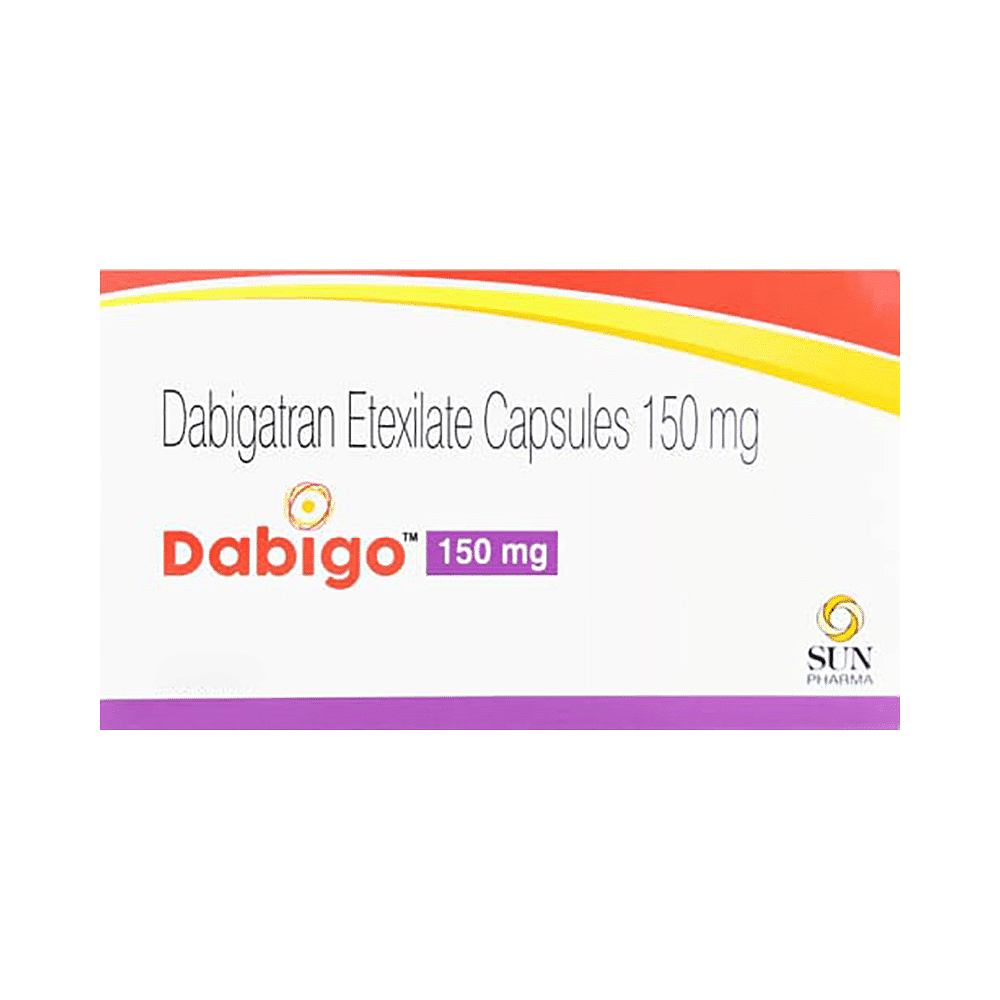
Dabigo 150mg Capsule
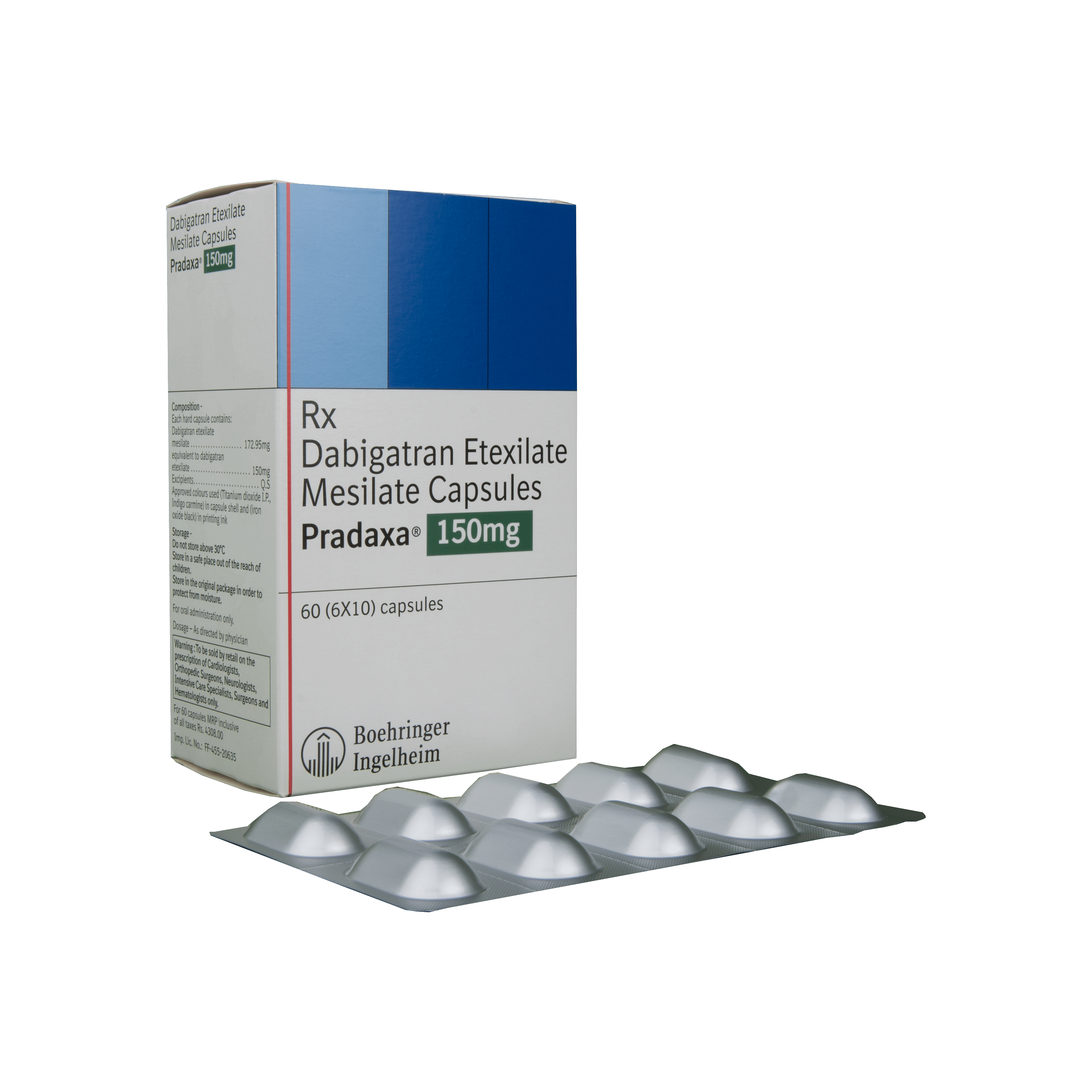
Pradaxa 150mg Capsule
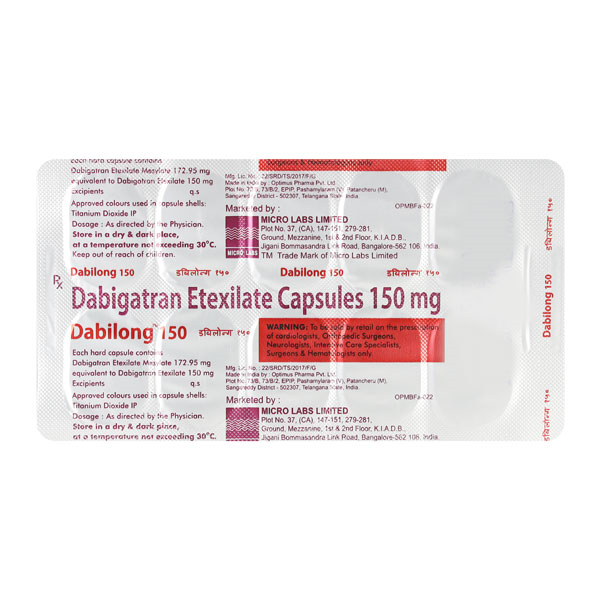
Dabilong 150 Capsule
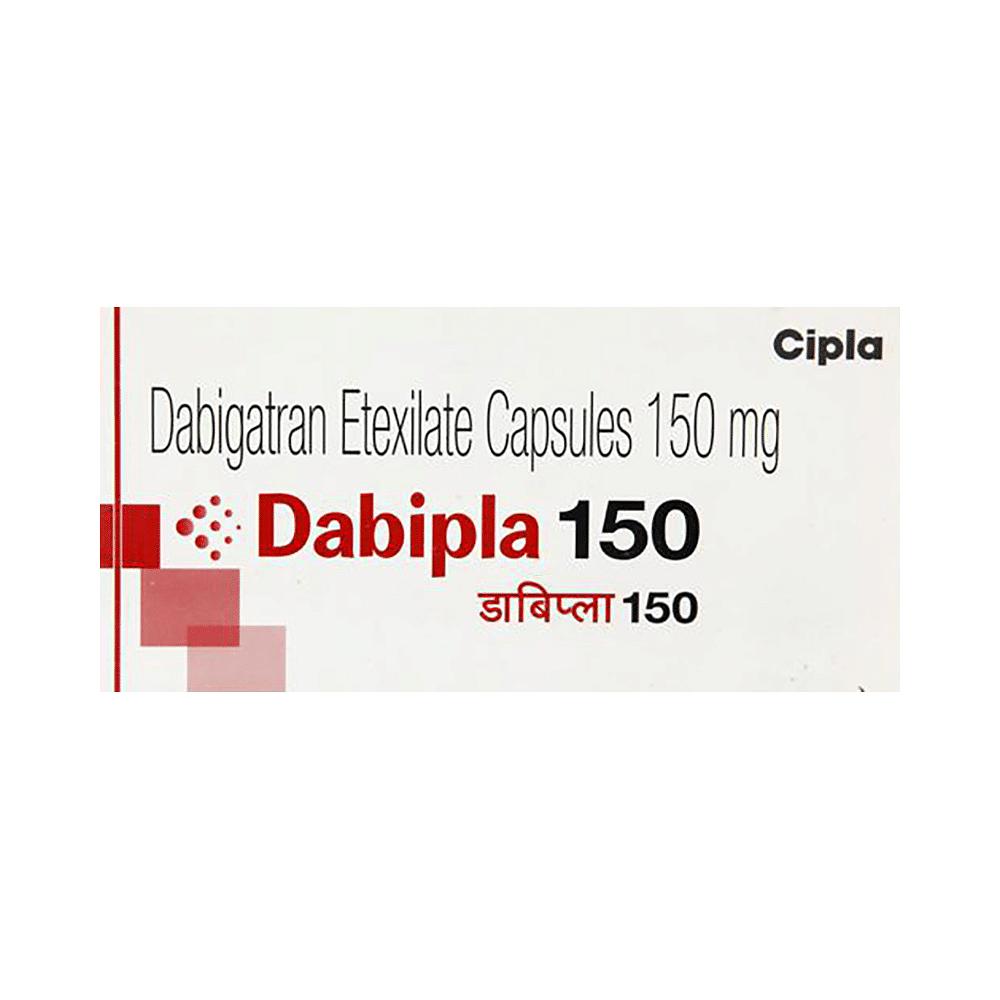
Dabipla 150mg Capsule

Dabisung 150mg Capsule
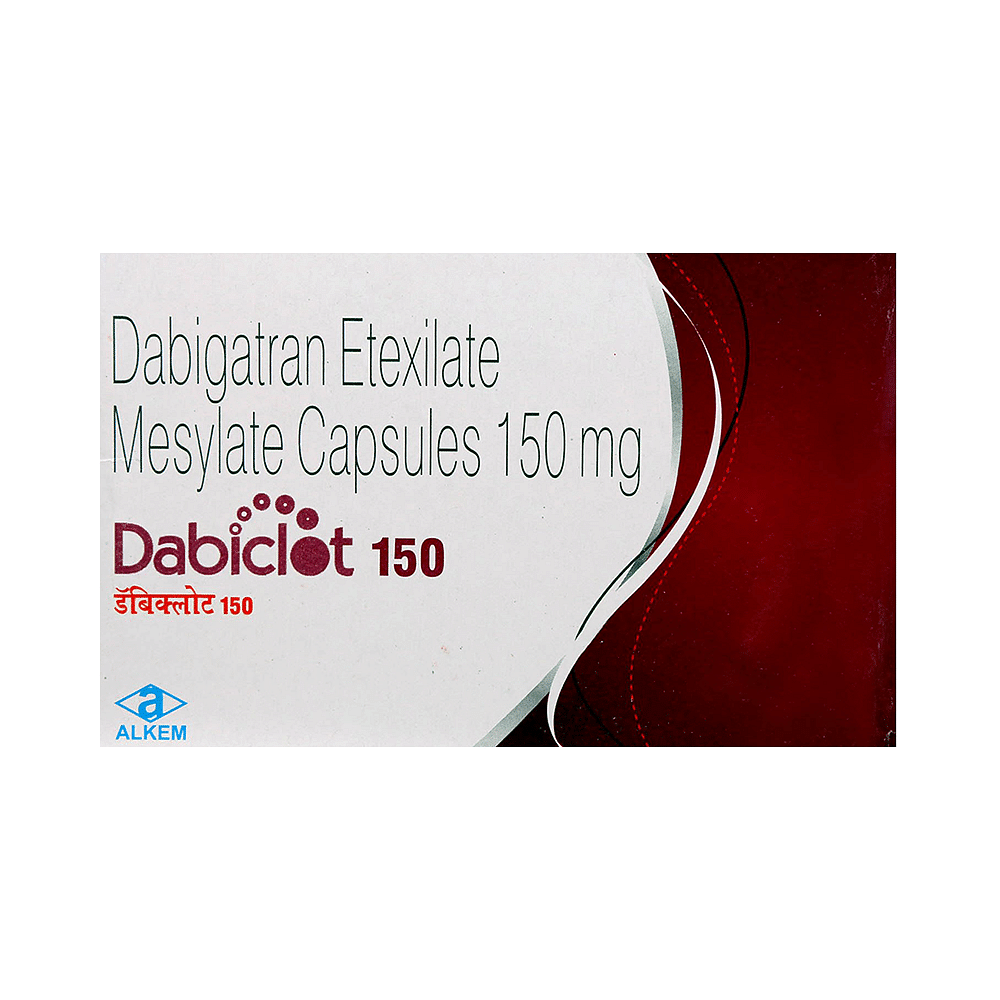
Dabiclot 150mg Capsule
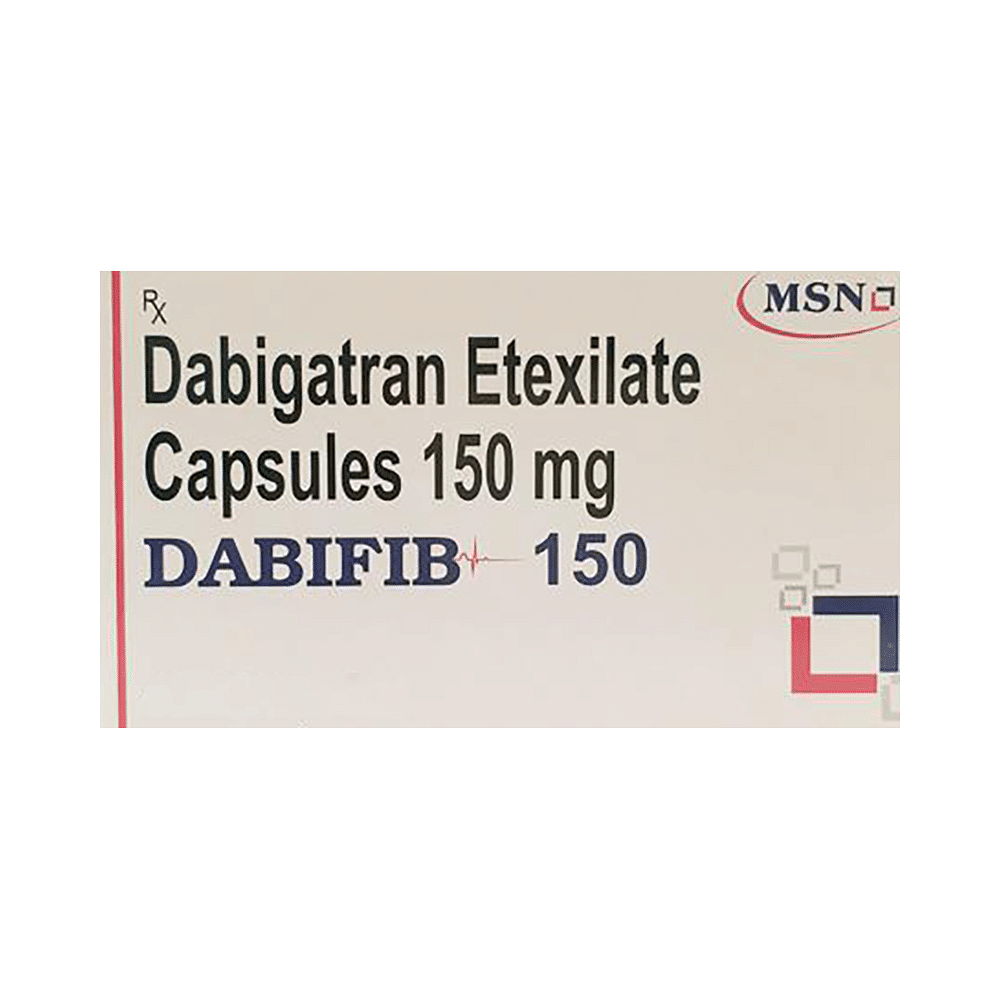
Dabifib 150 Capsule

Dbtero 150mg Capsule
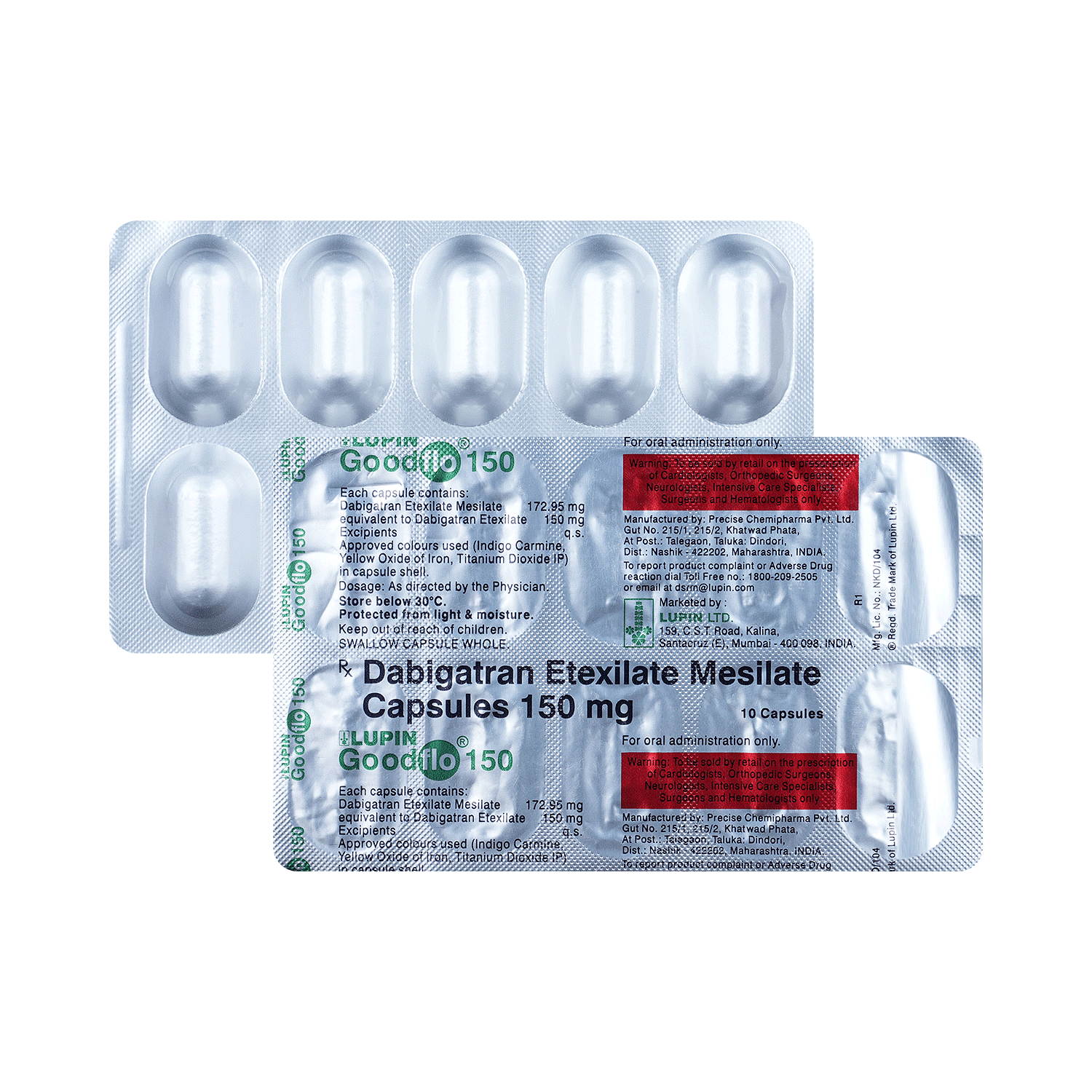
Goodflo 150mg Capsule

Macdaxa 150mg Capsule
Frequently asked questions
When should I take Dablexa 150 Capsule?
Dablexa 150 Capsule is typically taken twice daily at the same time each day, with a gap of about 12 hours between doses.
Can I drink alcohol while taking Dablexa 150 Capsule?
Alcohol consumption can amplify the effects of Dablexa 150 Capsule and may increase the risk of bleeding. It is advisable to avoid alcohol while taking this medication, especially if you have a history of gastric ulcers, as it might lead to further bleeding. Consult your doctor if any episodes of bleeding occur.
Can Dablexa 150 Capsule cause hair loss?
Dablexa 150 Capsule is generally not known for causing hair loss. However, there are rare instances of hair loss reported in association with Dablexa 150 Capsule. If you experience hair loss while taking this medication, consult your doctor to rule out other potential causes.
When will I feel better after taking Dablexa 150 Capsule?
Dablexa 150 Capsule reduces the risk of blood clots in the leg, lungs, heart and brain. While you might not directly feel improvement immediately, keep taking this medication as prescribed by your doctor to ensure full benefit.
Does Dablexa 150 Capsule affect the liver?
Unlike other anticoagulants, Dablexa 150 Capsule is generally not known for significantly affecting liver function. However, long-term use of this medication may increase the likelihood of mild liver injury in individuals with pre-existing elevated liver enzymes. It's recommended to inform your doctor if you have a history of liver disease before starting Dablexa 150 Capsule.
How should I store Dablexa 150 Capsule?
Dablexa 150 Capsule should be stored at room temperature between 59°F to 86°F (15°C to 30°C). It's crucial to keep the capsules in a dry environment and protect them from moisture. Ensure the bottle is tightly closed after each use, keeping it out of the reach of children. If the bottle is opened, consume all contents within four months. Please discard any unused medication responsibly after this period.
Can the use of Dablexa 150 Capsule increase the risk of bleeding?
Yes, Dablexa 150 Capsule does potentially increase the risk of bleeding. Be cautious about activities that could cause injury or bleeding. Inform your doctor immediately if you notice any unusual bruising or bleeding.
Who should not take Dablexa 150 Capsule?
Avoid Dablexa 150 Capsule in individuals experiencing any unexpected bleeding and those with known allergies to this medication. Additionally, it is advisable to avoid this medication if you have a history of artificial (prosthetic) heart valves. Consult your doctor for advice on these cases.


